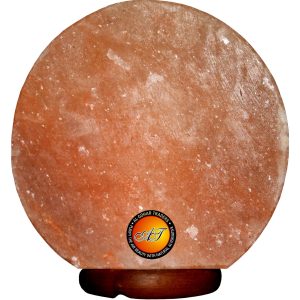Himalayan salt cooking plates have gained immense popularity in recent years for their unique ability to enhance flavors and provide a visually appealing cooking experience. Made from pure Himalayan pink salt, these plates are not only functional but also add a touch of elegance to any kitchen or dining table. This guide delves into the uses, benefits, care, and versatility of Himalayan salt cooking plates, making them a must-have for culinary enthusiasts.
Algohar World natural salt lamps that are believed to provide various benefits, combining both the aesthetic appeal and the potential health advantages associated with Himalayan salt lamps.
What is a Himalayan Salt Cooking Plate?
Origin
Himalayan salt is mined from ancient salt deposits in the Khewra Salt Mine in Pakistan. These deposits are rich in minerals, giving the salt its characteristic pink hue.
Composition
Himalayan salt contains over 80 trace minerals, including magnesium, potassium, and calcium, which contribute to its health benefits and distinct flavor.
Design and Features
Himalayan salt cooking plates are thick slabs of pink salt, designed for cooking, grilling, and serving food. They can withstand high temperatures, making them versatile for various cooking methods.
How to Use a Himalayan Salt Cooking Plate
Preparing the Plate
Seasoning: Salt plates do not require traditional seasoning but must be heated gradually to avoid cracking.
Heating: Heat the plate slowly over a low flame or in the oven to prevent thermal shock.
Cooking on the Plate
Place the preheated salt plate on a heat-safe surface.
Cook foods directly on the plate, ensuring even heat distribution and a subtle salty flavor.
Serving on the Plate
Chill the plate in the refrigerator for cold dishes like sushi or desserts.
Use it as a stylish serving tray for appetizers.
Benefits of Using a Himalayan Salt Cooking Plate
Enhances Flavor
The plate imparts a mild, natural saltiness to food, eliminating the need for added table salt.
Rich in Minerals
Cooking on a salt plate may transfer trace minerals to food, adding nutritional value.
Versatile Cooking Tool
Salt plates are suitable for grilling, baking, searing, and even freezing for cold dishes.
Elegant Presentation
Their unique appearance makes them perfect for serving and entertaining.
Eco-Friendly
Himalayan salt plates are natural and biodegradable, making them an environmentally friendly choice.
Foods to Cook on a Himalayan Salt Plate
Meats
Steak: Achieve a perfect sear and enhanced flavor.
Chicken: Cook juicy, flavorful pieces with ease.
Seafood
Shrimp: Retain moisture while adding a subtle salty taste.
Salmon: Perfect for grilling or baking.
Vegetables
Grilled zucchini, asparagus, or bell peppers absorb the plate’s natural flavors.
Fruits
Sear fruits like pineapple or peaches for a unique dessert.
Desserts
Chill the plate and use it for serving ice cream or chilled pastries.
Caring for Your Himalayan Salt Cooking Plate
Cleaning
Allow the plate to cool completely before cleaning.
Wipe it with a damp sponge or cloth. Avoid using soap, as it can absorb into the salt.
Note: himalayan salt cooking plate are not just tools but culinary experiences. They combine functionality and aesthetic appeal to elevate your cooking and dining.
Storage
Store in a cool, dry place.
Wrap in plastic wrap or place in a protective cover to prevent moisture absorption.
Longevity Tips
Avoid immersing the plate in water.
Handle with care to prevent cracking or chipping.
Precautions and Limitations
Heat Management
Gradual heating is essential to prevent cracking.
Avoid using high flames or rapid temperature changes.
Weight and Fragility
Salt plates are heavy and can be fragile. Handle with care to avoid damage.
Limited Lifespan
Over time, the plate will wear down due to natural erosion during use.
Innovative Uses for Himalayan Salt Plates
Infusing Drinks
Use the plate to chill and slightly salt cocktails or mocktails.
Baking
Bake cookies or pastries on the plate for a unique flavor twist.
Cold Applications
Use the plate as a chilling surface for cheese, sushi, or fruit platters.
Create a frozen dessert station with chilled salt plates.
Table Centerpiece
Even when not in use, the plate can serve as an eye-catching decorative piece.
Comparing Himalayan Salt Plates with Other Cooking Tools
Cast Iron
Cast iron retains heat longer, but salt plates enhance flavor naturally.
Non-Stick Pans
Non-stick pans are easier to clean, but salt plates are chemical-free and environmentally friendly.
Ceramic Plates
Ceramic plates are durable but lack the natural seasoning effect of Himalayan salt.
Frequently Asked Questions (FAQs)
How Long Does a Himalayan Salt Plate Last?
With proper care, it can last several years, depending on frequency of use.
Can I Use the Plate on an Induction Stove?
Salt plates are not compatible with induction stoves unless used with a heat diffuser.
Is it Safe for All Foods?
Yes, but acidic foods may erode the surface faster.
Can I Reuse the Plate?
Absolutely! Clean it properly after each use for repeated cooking and serving.
Where to Buy Himalayan Salt Cooking Plates
Specialty Stores
Check gourmet or kitchen supply stores.
Online Retailers
Platforms like Amazon, Walmart, and specialty cooking websites often carry these plates.
Local Markets
Some local markets may offer authentic Himalayan salt products.
Sustainability and Ethical Considerations
Responsible Mining
Choose products sourced from ethical suppliers to ensure sustainability.
Eco-Friendly Use
Dispose of worn-out plates naturally, as they are biodegradable.
Conclusion
Himalayan salt cooking plates are not just tools but culinary experiences. They combine functionality, health benefits, and aesthetic appeal to elevate your cooking and dining. Whether searing steak, chilling sushi, or serving desserts, these plates offer unmatched versatility and style. With proper care and creative use, a Himalayan salt cooking plate can be a cherished addition to any kitchen.
Would you like to expand on any section or include additional details?
